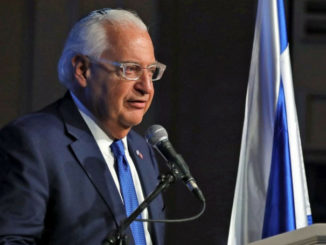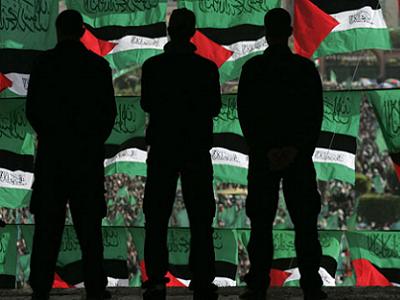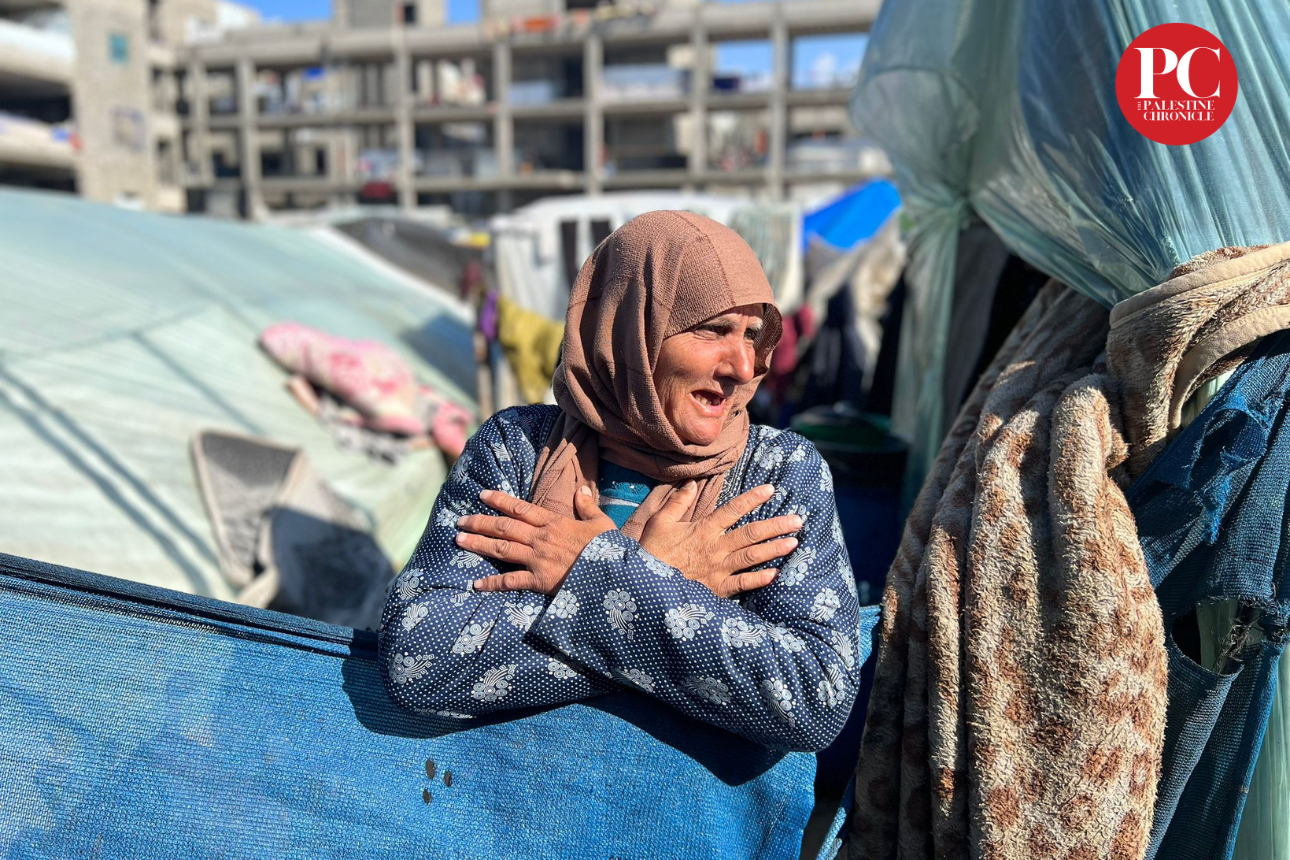
By Mahmoud Ajjour in Gaza & Romana Rubeo
“I come from Shati and I am so tired,” the woman told the Palestine Chronicle, as she stood in front of her small tent in Rafah.
Amal Asa’ad Baker al-Meinawi is an older woman from the Shati Refugee Camp in northern Gaza.
The Shati camp, or the Beach camp, is located directly at the Mediterranean coast. It is overcrowded, and is mostly inhabited by descendants of refugees who were ethnically cleansed during the establishment of Israel on the ruins of historic Palestine, known as the Nakba, or Catastrophe.
‘I am So Tired’
Amal was just a toddler when the Nakba took place. Like most inhabitants of the camp, her family survived on fishing and UNRWA handouts.
“I come from Shati and I am so tired,” the woman told the Palestine Chronicle, as she stood in front of her small tent in Rafah, which hosts her and a large number of her sons and relatives.
“My sons kept moving me from one car to another. I arrived here using a donkey cart. I just couldn’t walk. I am still alive, only God knows how,” she said.
Amal, however, cannot stop thinking of Shati, not only because of the life that she has built for her family there, but because she “left a piece of her heart” in northern Gaza.
“I have a son who is single, only 23 years old. He was left behind. I cry for him everyday, everyday. I cry for my son. The doctors keep coming to this (refugee camp) to check on me,” she said.
Amal Asa’ad Baker al-Meinawi is an older woman from the Shati Refugee Camp in northern Gaza.
“I come from Shati and I am so tired,” the woman told the Palestine Chronicle, as she stood in front of her small tent in Rafah, which hosts her and a large number of her sons and… pic.twitter.com/olVXn3SKD8
— The Palestine Chronicle (@PalestineChron) February 11, 2024
‘I Want to Go Home’
“I don’t want food. I don’t want anything. I just want to go home, to my home, to Gaza. I am very sad. I am tired here, physically, emotionally and psychologically,” she said, while crying and hiding her tears behind a thin white veil she uses as a headcover.
“I need nothing from here. I just want them to take me to Gaza.”
Though Gaza is only a short car ride away, tens of thousands of invading Israeli troops stand in Amal’s way, making her return, for now, impossible.
Moreover, as horrific the situation is in southern Gaza, the north is even in a worse shape, since far less food is allowed to enter to the nearly 700,000 Palestinians trapped there amid the destroyed cities and refugee camps. Many days ago, starvation arrived in that devastated region.
Amal’s priorities, however, are quite simple. “Day and night, I think about my kids. My son (left behind) is the youngest. I want him to get married. I want to feel happy for him.”
“I have another son who is also single here,” she said, pointing at a tent behind her, “but the one in Gaza is my favorite, because he is the youngest.”
Though the whole of Gaza Strip had subsisted under a harsh Israel siege prior to the war, for Amal, that Gaza was still a paradise. “Life back in Gaza? What can I say? My home was at the beach. I spent much of my days sitting on a chair at the beach. Even a piece of bread with Za’atar made me happy. Little things made me happy,” she reflected.
But “since being here, I have been quite ill. My kids kept taking me to the hospital. In Gaza things were different. There was something special about the sea water. It healed me.”
Firebelts
Amal remained in her home for as long as she could. There was a moment, however, where she could not hold on any longer.
“We ran away under the shelling. The (Israeli) planes would circle above us, before pounding (our homes) with fire belts while we were asleep. We ran away to the Al-Shifa hospital. (Later) we were told that we needed to get out of the hospital, and we did.
“I took all of my kids and their families, except for the youngest. His name is As’ad. He was left behind.”
Amal began sobbing again. “All I wish for is to see him and hug him. That’s my son. He is my heart. Everyday I pray to Allah, I tell Him I trust you with my son.”
“Since I came here I have become very sick. If it were not for my daughters in law, I would have died.”
According to Gaza’s Ministry of Health, 28,064 Palestinians have been killed, and 67,611 wounded in Israel’s ongoing genocide in Gaza starting on October 7.
Moreover, at least 8,000 people are unaccounted for, presumed dead under the rubble of their homes throughout the Strip.
Palestinian and international organizations say that the majority of those killed and wounded are women and children.
The Israeli aggression has also resulted in the forceful displacement of nearly two million people from all of the Gaza Strip, with the vast majority of the displaced forced into the densely crowded southern city of Rafah near the border with Egypt – in what has become Palestine’s largest mass exodus since the 1948 Nakba.
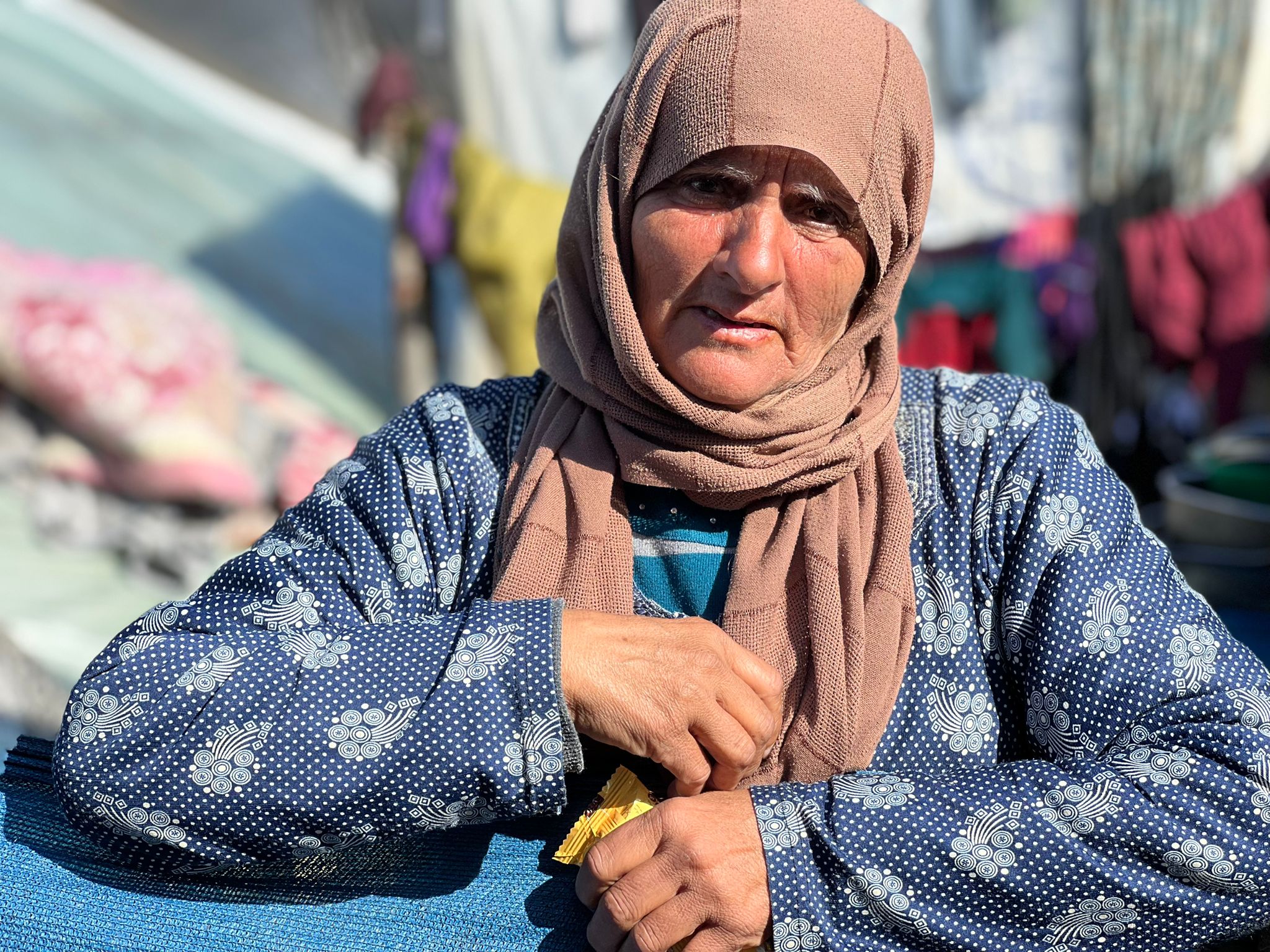
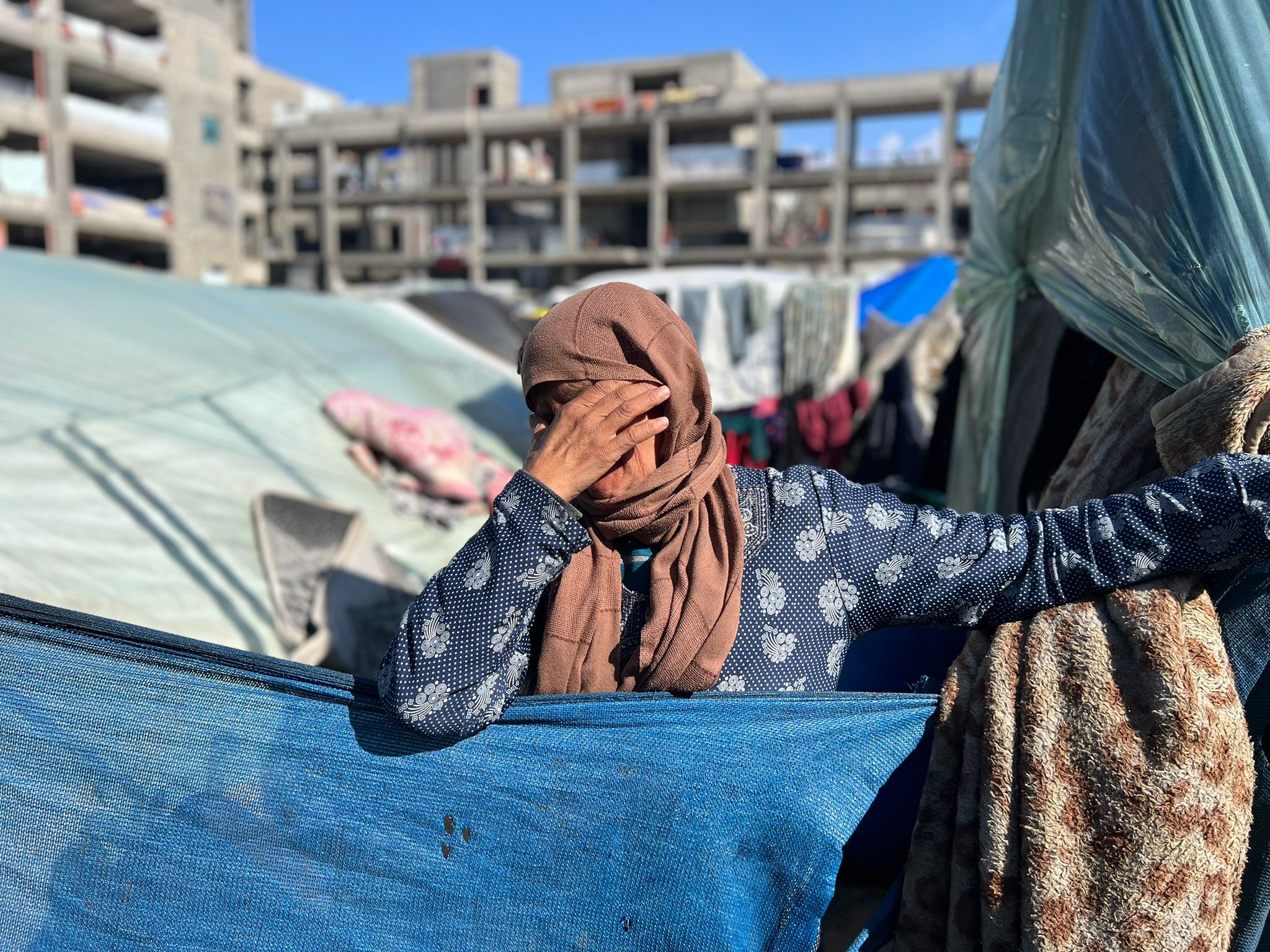
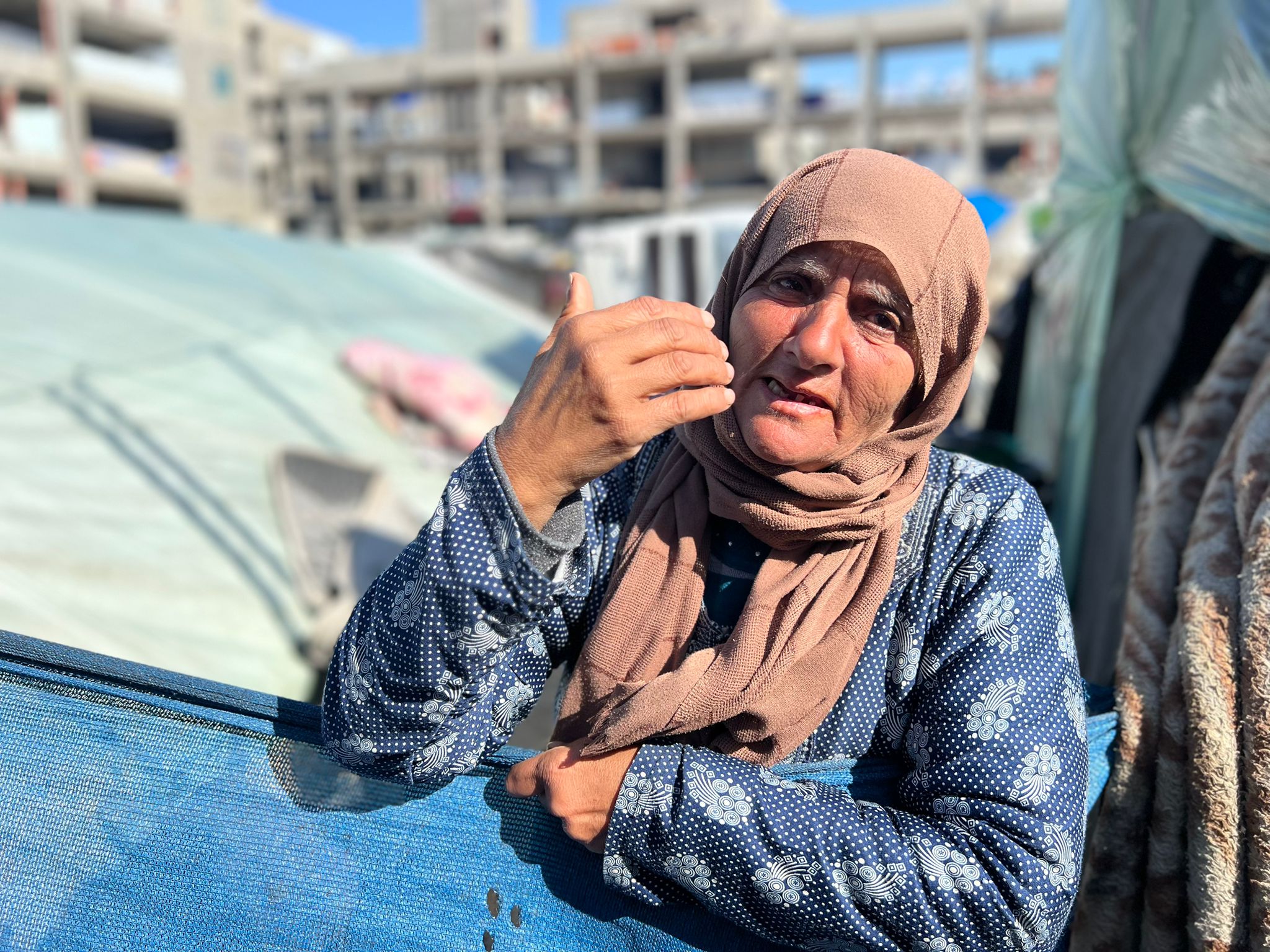
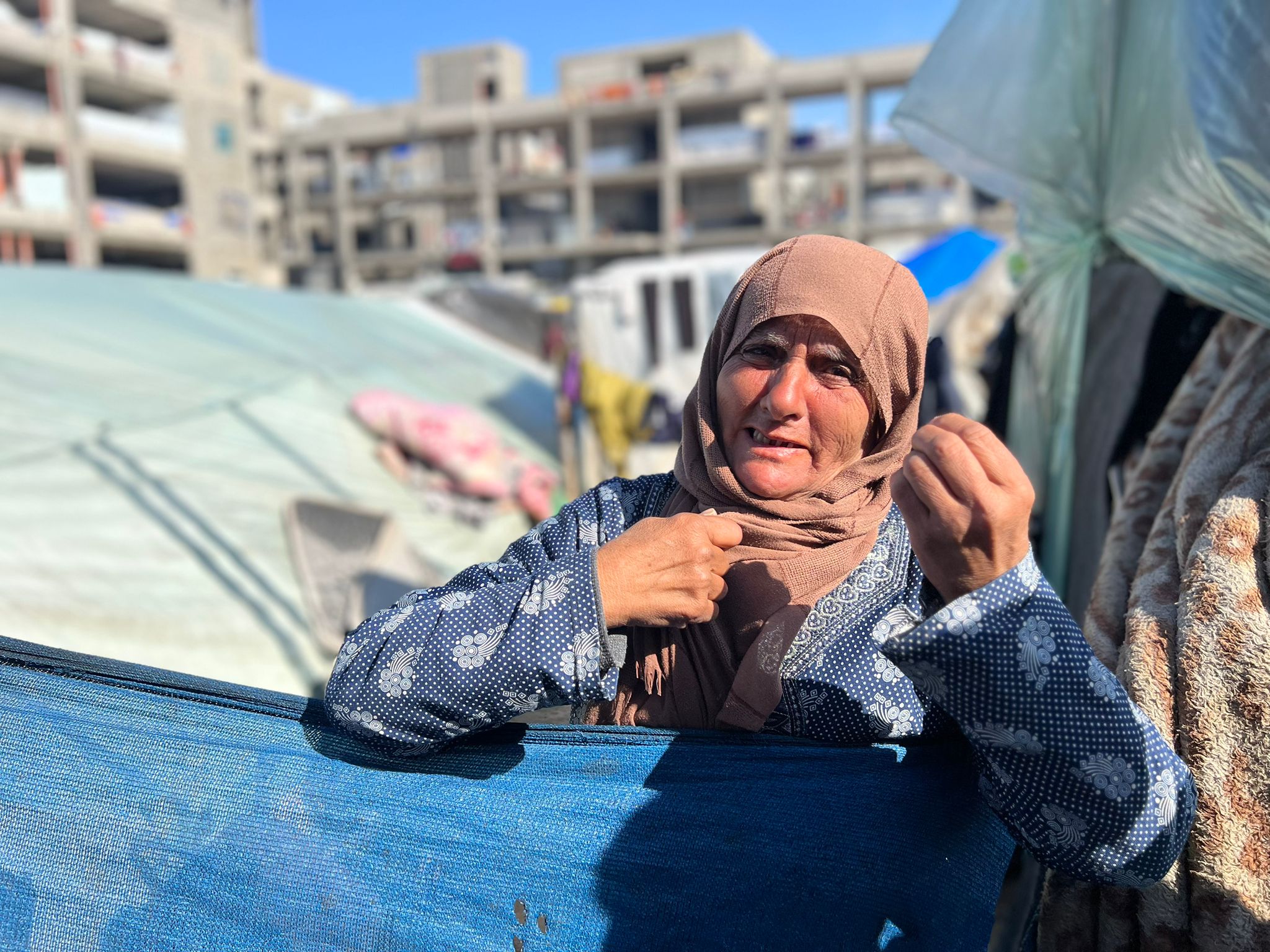
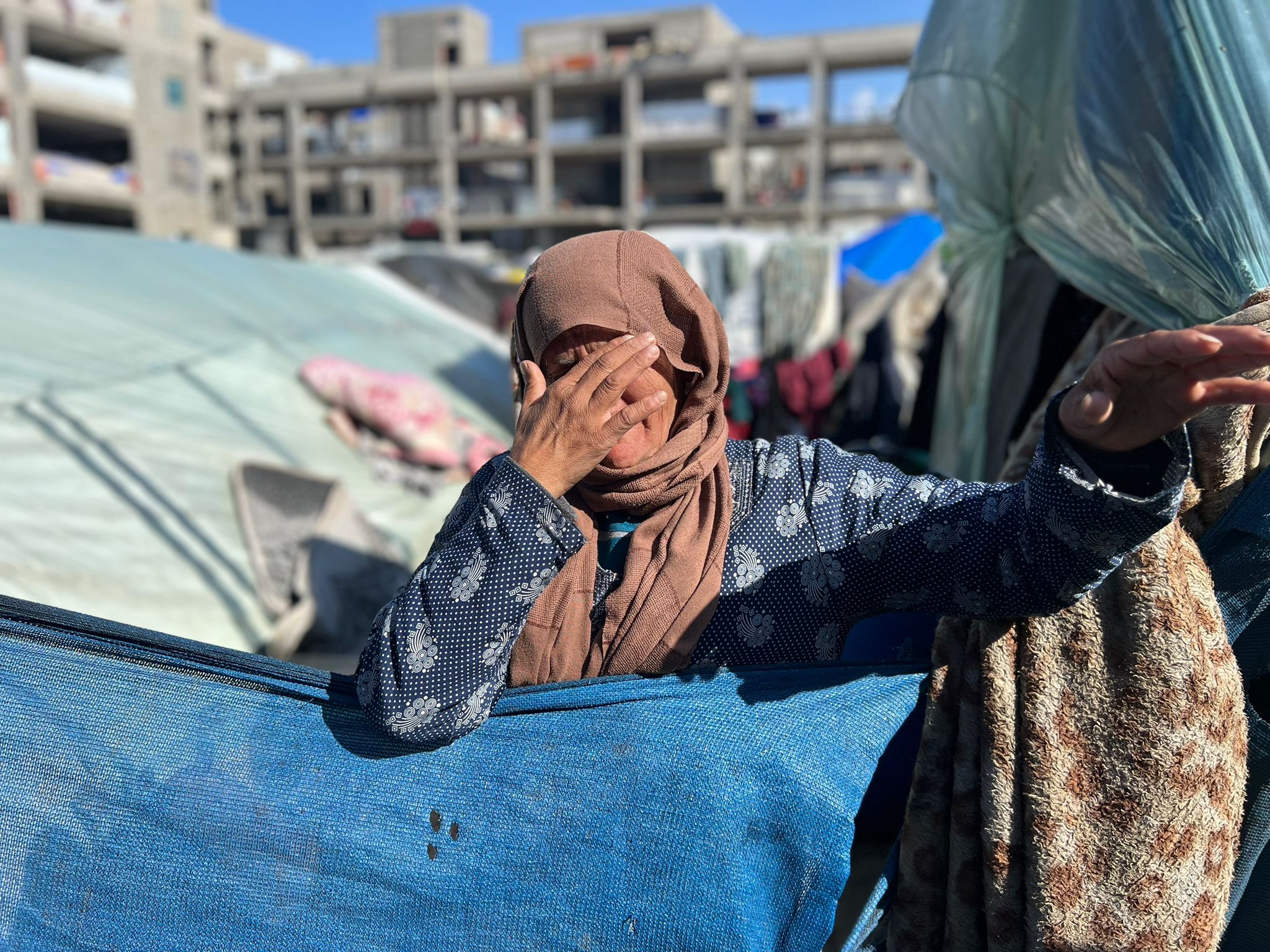
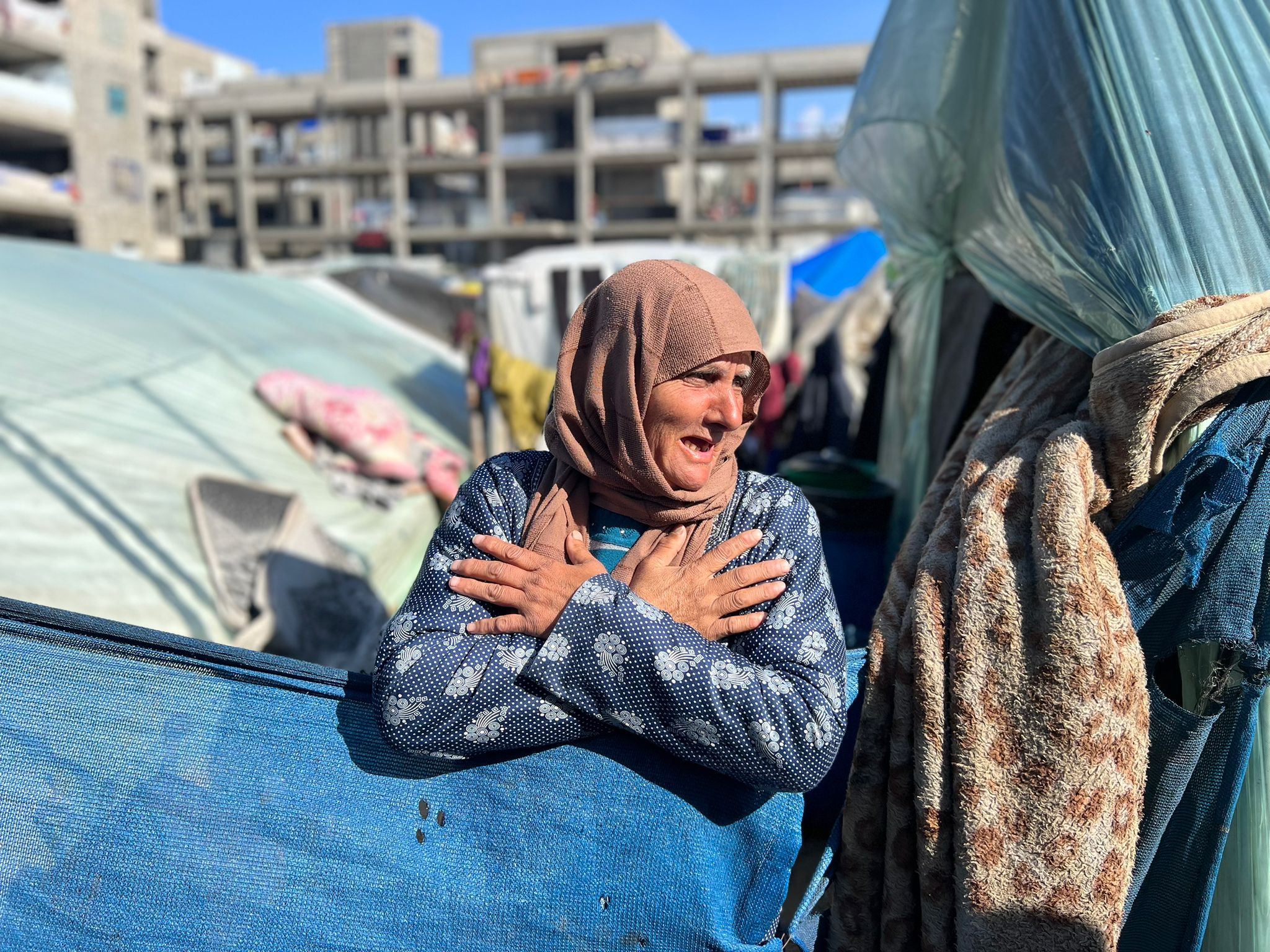
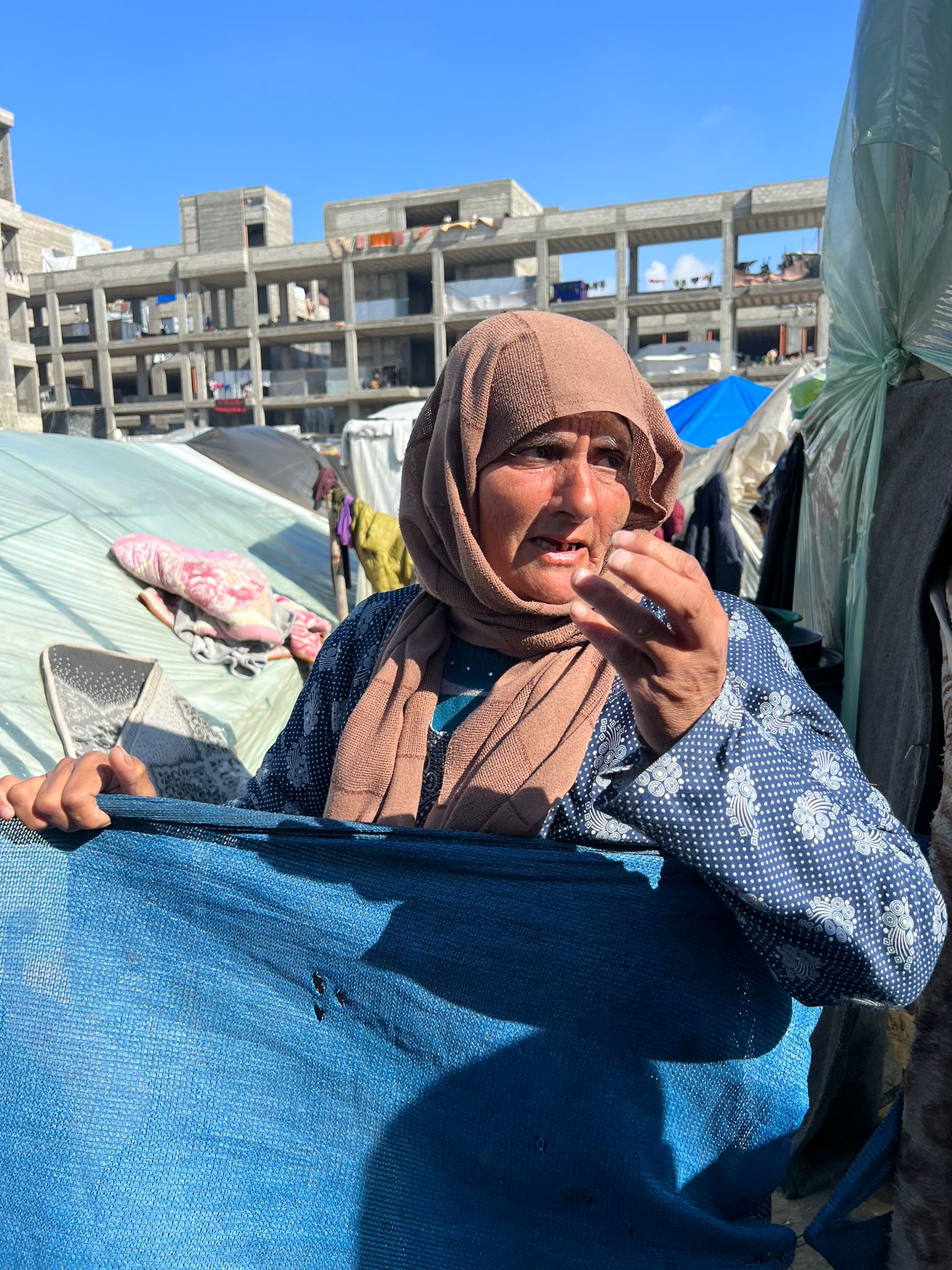
(The Palestine Chronicle)


